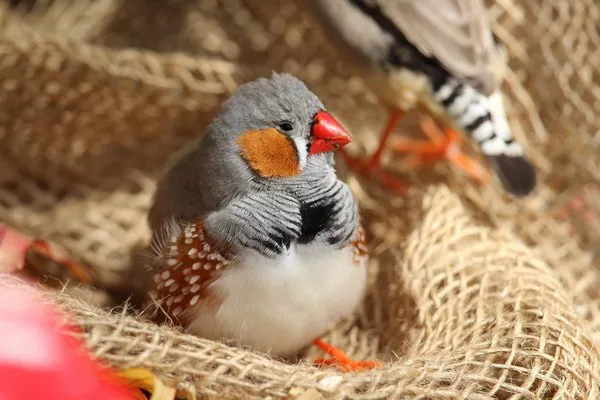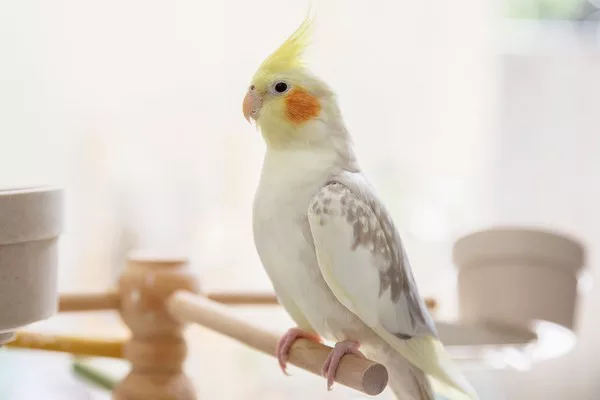Bearded dragons, known for their unique appearance and gentle disposition, have become increasingly popular as pets. These reptiles are native to arid regions of Australia, and as such, they have evolved to thrive in hot and dry conditions. To keep your bearded dragon healthy and happy, it’s crucial to understand their hydration needs. In this comprehensive guide, we will explore the importance of proper hydration, how you can tell if a bearded dragon is dehydrated, preventive measures to ensure they stay hydrated, and treatment options if dehydration becomes a concern.
The Significance of Hydration
Before delving into the specifics of hydration in bearded dragons, it’s important to recognize why this aspect of their care is so essential. Proper hydration is crucial for the overall well-being of these reptiles.
Dehydration can lead to a variety of health issues, including kidney problems, digestive difficulties, and even organ failure. Maintaining adequate hydration is essential to ensure your pet’s longevity and quality of life.
How Can You Tell if a Bearded Dragon is Dehydrated?
1. Skin Elasticity: One of the most common signs of dehydration in bearded dragons is reduced skin elasticity. To check for this, gently pinch a small fold of skin on your pet’s back. If the skin does not immediately snap back into place, it may indicate dehydration. Hydrated skin should quickly regain its original position.
2. Sunken Eyes: Dehydrated bearded dragons often exhibit sunken or dull-looking eyes. The eyes may appear to be recessed into the eye sockets, and this is a clear indication of insufficient hydration.
3. Lethargy: Dehydration can lead to lethargy and a lack of energy in bearded dragons. If your pet is unusually sluggish, it may be a sign that they are dehydrated.
4. Dark Urine: The color of a bearded dragon’s urine can provide valuable insights into their hydration status. Dark or highly concentrated urine may be a sign of dehydration, as properly hydrated dragons typically have lighter-colored urine.
5. Wrinkled Skin: Dehydrated bearded dragons may have wrinkled or folded skin. This can be especially noticeable in the loose skin around their neck, where folds may become more prominent.
6. Reduced Appetite: A loss of appetite is another indicator of dehydration. Bearded dragons typically have healthy appetites, so any significant reduction in food consumption should be taken seriously.
7. Thick Saliva: Dehydrated bearded dragons may produce thicker, stickier saliva. You can observe this when they lick their lips or when handling them.
Preventing Dehydration in Bearded Dragons
Prevention is always the best approach when it comes to ensuring the health of your bearded dragon. By taking proactive measures, you can reduce the risk of dehydration and create a comfortable living environment for your pet.
1. Provide Fresh Water: Always make sure that your bearded dragon has access to clean, fresh water. A shallow dish in their enclosure should suffice. Bearded dragons typically do not drink water frequently, but it’s crucial to offer it regularly.
2. Mist and Spray: To mimic the humidity levels in their natural habitat, use a reptile-safe mister or spray bottle to mist your dragon and their enclosure. This not only helps with hydration but also aids in shedding.
3. Proper Diet: Offer a diet that consists of fresh vegetables and insects, with appropriate calcium and vitamin supplementation. This will contribute to their overall health and hydration, as many fruits and vegetables have high water content.
4. Regular Bathing: Occasional baths can help keep your bearded dragon hydrated. Ensure the water is lukewarm, not hot, and that the depth is shallow enough that they can stand comfortably. Allow them to soak for 10-15 minutes.
5. Monitoring Humidity: Maintain appropriate humidity levels in the enclosure. Bearded dragons thrive in environments with a lower humidity range, typically around 30-40%. Ensure the enclosure is well-ventilated to prevent excess moisture buildup.
Treatment Options for Dehydrated Bearded Dragons
If you notice any signs of dehydration in your bearded dragon, it’s crucial to take immediate action to rehydrate and restore their health. Here are some steps to consider:
1. Rehydration Soaks: A rehydration soak can help restore a bearded dragon’s hydration levels. Prepare a shallow, lukewarm bath for your pet and let them soak for 15-20 minutes. Ensure that they have access to water, as they may drink during the bath. This can be done daily until their condition improves.
2. Offer Water: Encourage your dehydrated bearded dragon to drink water. You can use a dropper or syringe to place water near their mouth, but be cautious not to force it. It’s important to respect their natural instincts.
3. Hydration from Food: Offer water-rich foods like cucumbers, watermelon, or finely misted greens. Ensure the food is fresh and free from pesticides.
4. Monitor Their Diet: While rehydrating your bearded dragon, temporarily adjust their diet to be lighter and easier to digest. Feeding them heavy meals may exacerbate their condition.
5. Seek Veterinary Care: If your bearded dragon’s condition doesn’t improve within a day or two of home treatment, consult a reptile veterinarian. They can provide more advanced care, such as fluid therapy and further diagnostic testing if needed.
Conclusion
Proper hydration is paramount for the well-being of your bearded dragon. Understanding how to recognize signs of dehydration, taking preventive measures to keep your pet adequately hydrated, and knowing how to treat dehydration if it occurs are essential aspects of responsible reptile ownership. By following the guidelines outlined in this article, you can help ensure a long, healthy, and fulfilling life for your beloved bearded dragon. Always prioritize their comfort and well-being, and consult with a reptile veterinarian when necessary to provide the best possible care for your scaly companion.
FAQs about Fluid Treatment for Bearded Dragons When Dehydrated:
1. How should I administer fluids to my bearded dragon?
Fluids can be administered to your bearded dragon through various methods, including oral syringe feeding, subcutaneous injections, or bathing. The method used depends on the severity of dehydration and the recommendations of your veterinarian. Be sure to follow your veterinarian’s instructions for the safest and most effective approach.
2. Can I use a dropper to give fluids to my dehydrated bearded dragon?
Yes, a dropper or a syringe can be used to give fluids to your dehydrated bearded dragon. This method is suitable for providing small amounts of fluids directly into the mouth. Be careful not to force fluids into their mouth, as it may cause stress. Gently administer the fluids and allow your pet to swallow at their own pace.
3. How often should I administer fluids to a dehydrated bearded dragon?
The frequency of fluid administration depends on the severity of dehydration and your veterinarian’s recommendations. In mild cases, oral administration once or twice a day may suffice. In severe cases, more frequent administration may be necessary. Always follow your veterinarian’s guidance for the best approach.
4. How long should I continue fluid treatment for a dehydrated bearded dragon?
The duration of fluid treatment varies depending on the severity of dehydration and how well your bearded dragon responds to treatment. In mild cases, a few days of fluid treatment may be sufficient. Severe cases may require a more extended treatment period. Always consult with a veterinarian to determine when to discontinue fluid treatment.
5. Are there any potential risks or complications associated with fluid treatment?
Administering fluids to a dehydrated bearded dragon carries some risks, including the potential for aspiration if fluids are inhaled, causing respiratory issues. Additionally, incorrect fluid concentrations or administration methods can lead to complications. To mitigate risks, always seek professional guidance from a veterinarian when administering fluid treatment.
In conclusion, recognizing and addressing dehydration in bearded dragons is crucial to their health and well-being. Fluid treatment is an essential component of their care, and it should be conducted under the guidance of a reptile veterinarian. If you suspect your bearded dragon is dehydrated, do not hesitate to seek professional advice to ensure the best possible outcome for your beloved pet.
Related Topics:
What Not to Feed Bearded Dragons: 10 Things to Avoid
Can Bearded Dragons Eat Cucumbers? Facts & FAQ
How often do i bathe my bearded dragon?


























